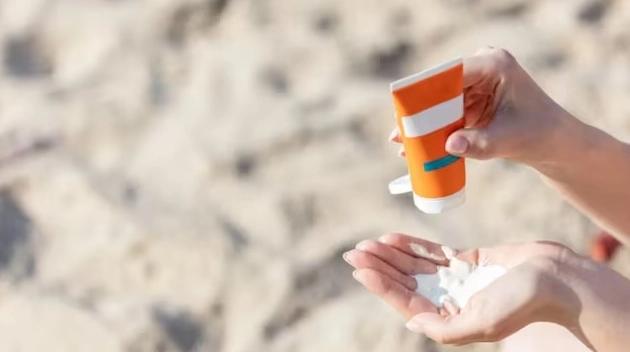
In a country where summer temperatures routinely soar above 45°C, India’s approach to sunscreen regulation remains surprisingly lax. The booming suncare market, growing at 30-40% annually and valued at approximately ₹2,500 crore, operates with minimal oversight on product efficacy, creating a landscape where consumer protection takes a backseat to marketing claims.
The fundamental issue lies in classification: sunscreens fall under the category of cosmetics in India rather than special cosmetics or OTC categories used in other countries, despite their critical role in preventing long-term skin damage. But when products claim to shield us from harmful UV radiation, they must require rigorous verification and standardised testing for such claims. This regulatory gap has relegated sunscreens to a regulatory afterthought, while globally, countries recognise them as health essentials deserving of rigorous standards. Dr. Ankur Sarin, Dermatologist, shares all you need to know:
The current regulatory framework falls between institutional cracks. While cosmetics are governed under the antiquated Drugs & Cosmetics Act of 1940, the focus remains primarily on preventing harmful ingredients rather than verifying product efficacy. The Bureau of Indian Standards does specify permitted ingredients and concentration limits, but crucially fails to mandate standardised testing protocols to verify whether the products deliver their advertised sun protection. This regulatory vacuum has created a wild west of testing methodologies—companies can choose between in vivo (on living subjects), in vitro (laboratory), or even mathematical models to support their SPF claims.
Interestingly, consumer behaviour has undergone a dramatic transformation. Walk through any beauty store or scroll social media—sunscreen has evolved from an occasional beach companion to a daily essential in Indian routines. Beauty influencers champion it as “non-negotiable," while dermatologists warn that even indoor exposure requires protection. Responding to this demand, Indian brands are upping the ante, with 8 out of 10 new launches in 2024 offering SPF 50+.
As sunscreen becomes a year-round staple, brands must go beyond just SPF numbers, focusing on skin benefits and testing credentials. Without regulatory standards, these sophisticated claims remain unverifiable, leaving consumers adrift in a sea of marketing promises.
As Indians increasingly embrace homegrown beauty products, they deserve the same level of protection afforded to consumers in regulated markets. Without domestic standards, discerning consumers will turn to imported brands perceived as more reliable, creating unnecessary economic leakage.
More importantly, India already possesses the scientific expertise and manufacturing capabilities to establish world-class sunscreen standards tailored to our typically more melanin-rich population, which faces different concerns than those addressed by global testing protocols.
Encouragingly, forward-looking companies have been driving the adoption of world-class sun protection standards since 2016, forging a productive partnership between the Indian Beauty and Hygiene Association (IBHA) and the Bureau of Indian Standards (BIS). Significant progress was made in 2021 with BIS’s adoption of gold-standard ISO methods for UVA protection and water resistance testing, but the collaboration continues to evolve as experts adapt SPF testing protocols to better serve Indian skin diversity. The final BIS publication on in-vivo SPF determination methods is anticipated in Q2 2025 and is expected to establish clear testing protocols and transparent labelling requirements, bringing India one step closer to world-class sun protection for all consumers.
With these promising developments underway, India stands at a crucial juncture where science must fully align with regulation. The completion of these standards will not only safeguard consumers but could position Indian brands as pioneers in sun protection formulated for diverse skin tones, ensuring that when Indians reach for sun protection, they receive exactly what they’re promised.
-
ABVMU CPET Counselling 2025: Registration Process For Round 1 Starts At abvmucet25.co.in; Details Here

-
'Hardware Was Fine, Software Was Faulty': Baba Ramdev Reacts To Shefali Jariwala's Death, Says 'Symptoms Were...'

-
Trump's "big, beautiful bill" stalled by Republican rebellion as House sets make-or-break final vote

-
Trump's "big, beautiful bill" stalled by Republican rebellion as House sets make-or-break final vote

-
Ed Miliband in the running to replace Rachel Reeves as chancellor - runners and riders
